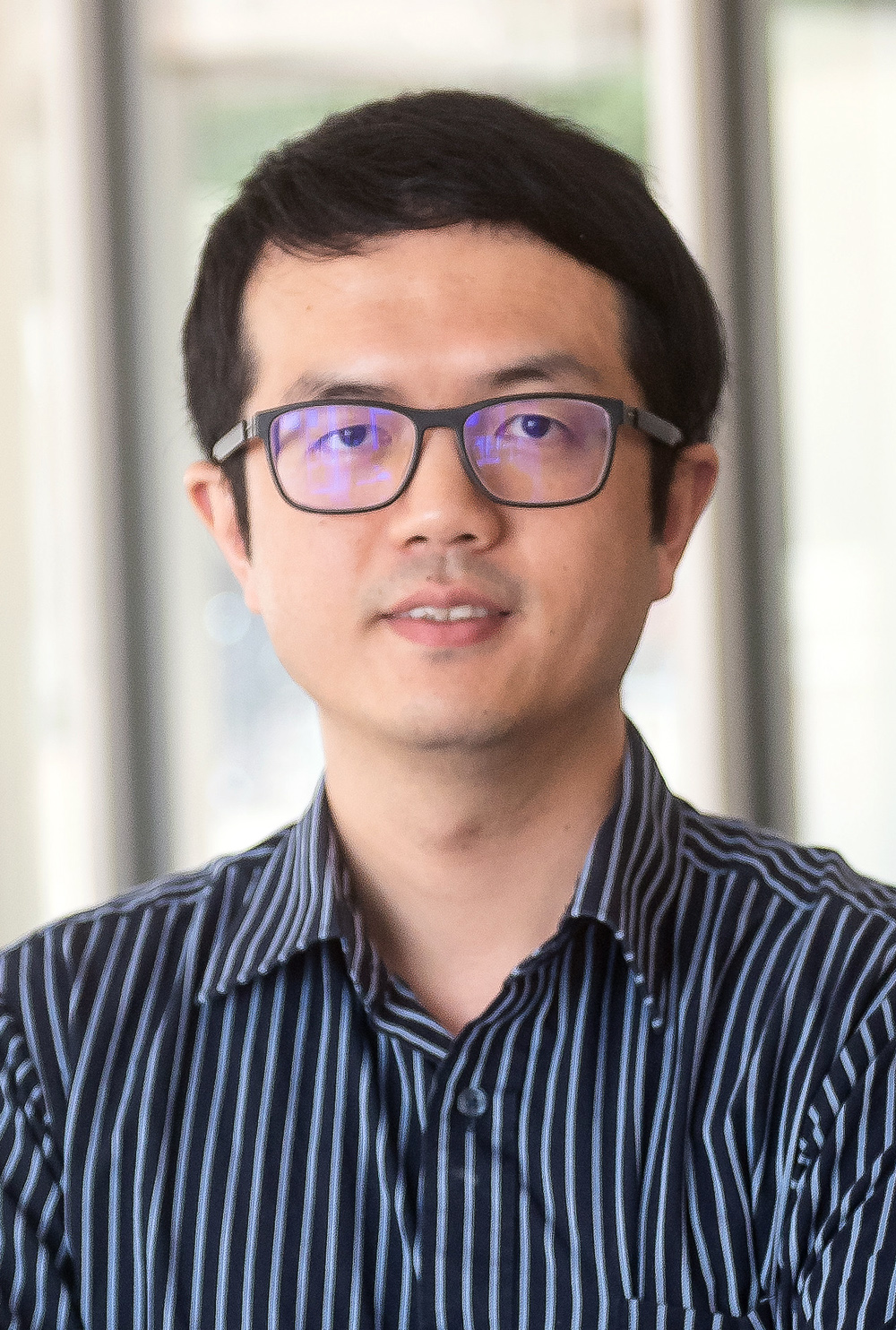
Two faculty in the College of Arts and Sciences are among 11 Texas A&M University faculty named to the 2024 class of Chancellor’s Enhancing Development and Generating Excellence in Scholarship (EDGES) Fellows, announced July 16 by the university.
Chemist Dr. Lei Fang and physicist Dr. Rupak Mahapatra each received the coveted honor, created in 2019 with the help of resources from the Texas A&M University System under the direction of Chancellor John Sharp to honor, incentivize and elevate mid-career faculty who are making significant marks in their disciplines. The recognition highlights Texas A&M’s intentional commitment to intensively support, retain and recognize faculty with significant and sustained accomplishments and the promise of continued high-impact scholarship.
EDGES Fellowships are awarded to faculty members identified by their deans as being worthy of national and international acclaim with careers on a trajectory consistent with potential membership in national academies or national and international awards in fields without national academies. In addition to receiving crucial funding support, EDGES Fellows retain their titles throughout their tenure as Texas A&M faculty members in good standing.

Fang joined the Texas A&M Department of Chemistry in 2013 after earning his doctorate in chemistry from Northwestern University in 2010 under the mentorship of 2016 Nobel Prize in Chemistry co-recipient Sir J. Fraser Stoddart. Fang spent three years as a postdoctoral scholar at Stanford University prior to coming to Texas A&M, where he also holds a joint appointment in the Department of Materials Science and Engineering.
Widely viewed as a rising star in polymer and materials science, Fang leads a multidisciplinary research group that studies functional organic materials with electronic, thermal or photo-activity in search of applications associated with electronics, energy, smart materials and catalysis. His research seeks to gain insights into design principles and structure-property relationships of these materials at both the molecular and the macroscopic scale by employing the toolboxes of synthetic chemistry, materials characterization and process engineering. In particular, his group is interested in the bottom-up synthesis and processing of ladder polymers and microporous polymer networks.
Fang’s career honors to date include a 2021 Humboldt Research Fellowship for Experienced Researchers, a 2018 Polymers Young Investigator Award recognizing outstanding polymer chemists under the age of 35 across the world and a 2017 National Science Foundation Faculty Early Career Development (CAREER) Award. In addition to being named a 2018 Royal Society of Chemistry Polymer Chemistry Emerging Investigator and a 2017 American Chemical Society Division of Polymeric Materials: Science and Engineering (PMSE) Young Investigator, Fang was honored by the chemistry industry as the recipient of the KANEKA Junior Faculty Award in 2015.

Mahapatra joined the Texas A&M Department of Physics and Astronomy in 2008 after receiving his Ph.D. from the University of Minnesota in 2000 and completing postdoctoral work at the University of California, Santa Barbara. A member of the George P. and Cynthia Woods Mitchell Institute for Fundamental Physics and Astronomy, he is an international expert in high-energy particle physics and dark matter and has considerable expertise in building particle detectors and related data analysis.
A 2010 Department of Energy Early Career Research Award recipient, Mahapatra has served since 2003 as a principal investigator with the international Super Cryogenic Dark Matter Search (SuperCDMS) experiment and the affiliated SuperCDMS SNOLAB experiment, a world leader in the search for elusive weakly interacting massive particles (WIMPs). In 2017, he also founded a new world-class experiment, the Mitchell Institute Neutrino Experiment at Reactor (MINER) housed at the Texas A&M Nuclear Science Center, that utilizes cutting-edge low threshold detectors developed at Texas A&M to precisely measure background signals while also searching for new interactions beyond what is known to exist in the Standard Model of particle physics. He currently is involved in developing next-generation dark matter detectors made of germanium semiconductors with Transition Edge Sensors utilizing state of the art semiconductor device fabrication instruments in his laboratories.
Fang and Mahapatra, both of whom are also Presidential Impact Fellows, are among 14 current or former Texas A&M Arts and Sciences faculty honored to date as EDGES Fellows, joining Dr. Sheela Athreya (Anthropology), Dr. Sarah Brooks (Atmospheric Sciences), Dr. Gil Rosenthal and Dr. Joseph Sorg (Biology), Dr. Sarbajit Banerjee and Dr. Wenshe Ray Liu (Chemistry), Dr. Sarah Zubairy (Economics), Dr. Wendy Jepson (Geography), Dr. Sonia Hernández (History), Dr. Kenny Easwaran (Philosophy), Dr. Alexei Safonov (Physics and Astronomy) and Dr. Holly Foster (Sociology).
Learn more about Chancellor’s EDGES Fellowships or faculty excellence in the College of Arts and Sciences.

